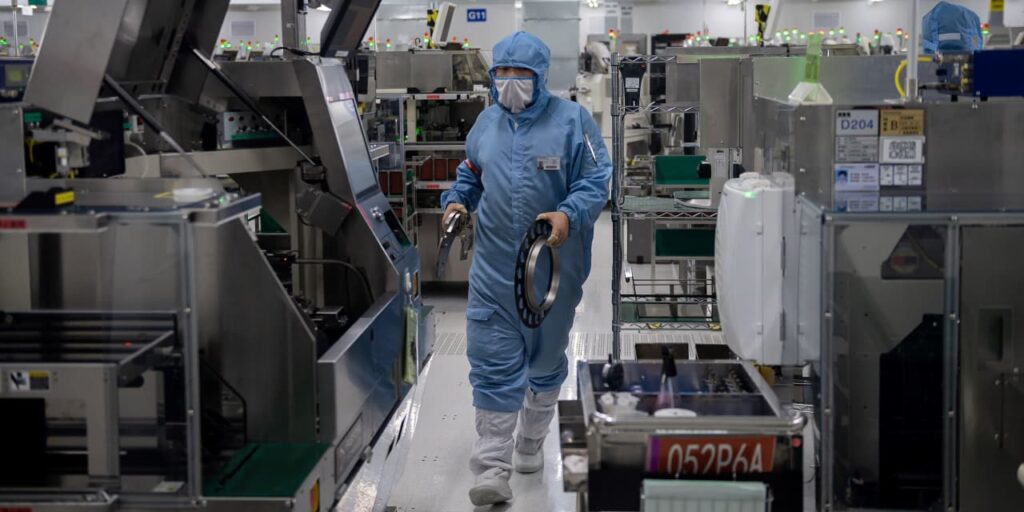The U.S.-China rivalry over semiconductor technology is rocking the chips sector. While the tensions pose a headwind for popular chip stocks like
Nvidia,
there are several companies well placed to benefit, according to Citi analysts.
Fears over the vulnerability of Taiwan, as well as broader considerations of national security, are driving U.S. and European investment in semiconductor manufacturing. In turn, China is reacting to limits on its imports of technology by investing in its own chip foundries.
Altogether it adds up to a huge wave of investment in semiconductor equipment—around $100 billion in extra spending as a result of U.S. and European government efforts alone, according to Citi. A number of tech players should benefit:
Taiwan Semiconductor Manufacturing
(ticker: TSM),
Samsung Electronics,
and
ASML
(ASML), and in the U.S.,
Applied Materials
and
GlobalFoundries.
“Within the semiconductor equipment space, our top picks are ASML and
Applied Materials
given each has a dominant position,” wrote Citi analyst Chris Danely.
Applied Materials is the largest American maker of semiconductor-manufacturing equipment and Citi is betting on its leadership in materials engineering to maintain that position in the long term.
The stock is up 55% this year to last trade at roughly $151. Citi has a Buy rating and $170 target price on Applied Materials, based on a price-to-earnings multiple of 17 times its estimated 2025 earnings.
Dutch firm ASML has a dominant position in making the “lithography” machines vital for producing semiconductors, and Citi expects it to be a key beneficiary of European chip firms building new manufacturing sites.
Citi has a Buy rating on ASML shares with a €780 target price. ASML shares in Amsterdam were trading at about €634 on Friday, while its American depositary receipts stood at $688.
Geopolitical concerns about Taiwan might seem like a headwind for
Taiwan Semiconductor Manufacturing,
or TSMC, but Citi is confident it will remain the largest contract chip maker in the world.
“We also believe TSMC will remain the dominant foundry given its advantage in manufacturing, and the stock remains a top pick although Samsung and
GlobalFoundries
could benefit from secondary sourcing outside Taiwan,” Danely wrote.
Citi has a Buy rating and $70 target price on GlobalFoundries which last traded at around $54.
Notably absent, however, from Citi’s list of beneficiaries is Intel.
Intel is expanding its foundry business to rival TSMC and
Samsung Electronics
but the analysts are pessimistic about its prospects. They cite its relative lack of experience and economy of scale, among other factors.
“We believe Intel will not succeed in its foundry ambitions given it is so far behind TSMC and has not proven it can be a competitive foundry, and analog companies will undergo lower growth as a result of China’s policy of insourcing as much semiconductor content as possible,” Danely wrote.
Danely has a Neutral rating and $34 target price on Intel stock which last traded at around $43.
Write to Adam Clark at adam.clark@barrons.com
Read the full article here

